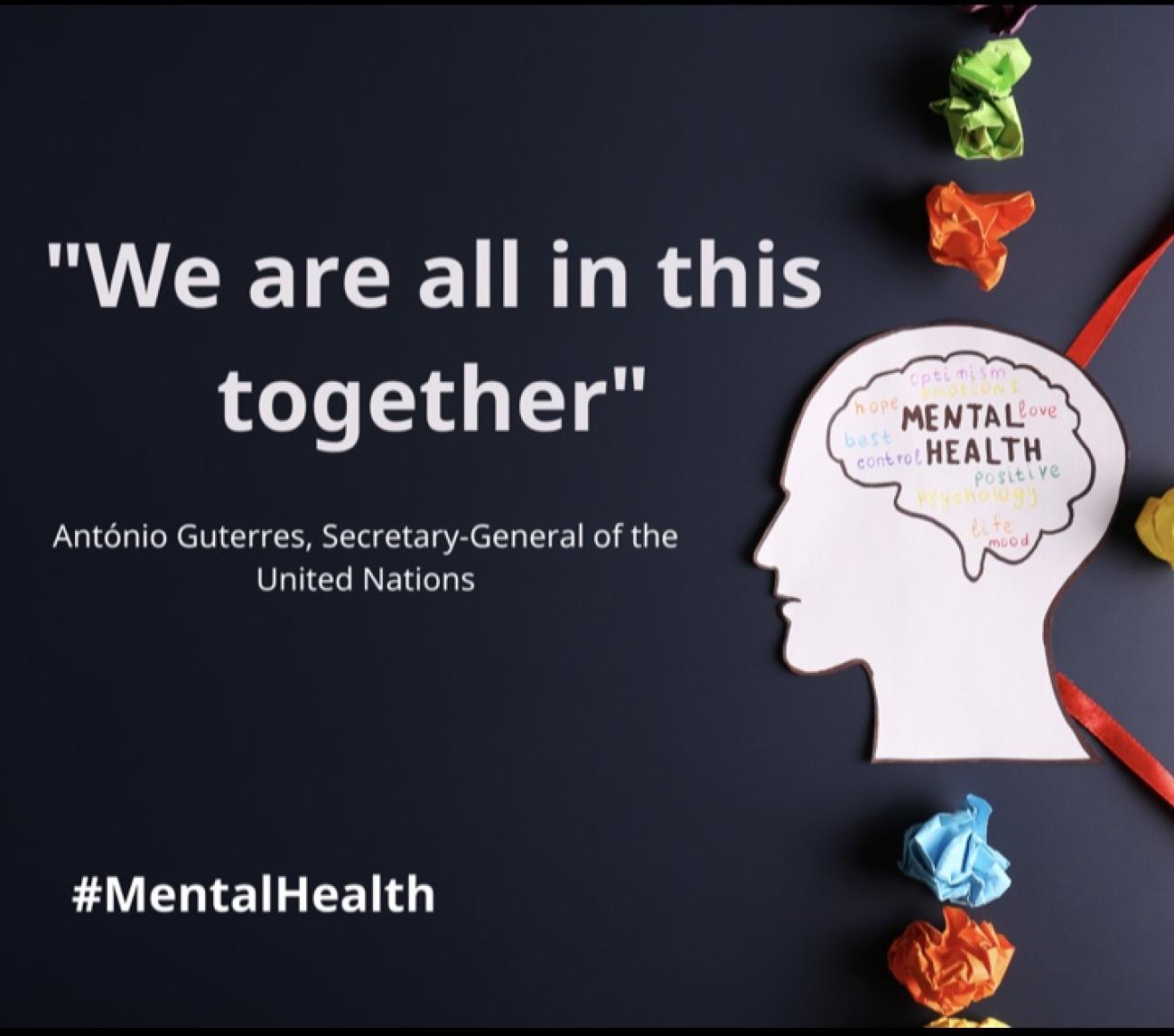Taking care of our mental health during the COVID-19 pandemic

Mental health and well-being is vital during this time.
The COVID-19 pandemic has affected all of us in one way or another. This time of crisis can generate stress and have an impact on our mental health and well-being.
Mental health is more than just the absence of mental disorders or disabilities. It is a state of mental well-being in which people cope well with the many stresses of life, can realize their own potential, and can function productively and fruitfully. Good mental health is critical to each country’s response to, and recovery from, COVID-19. It helps people perform in key roles within families, communities and societies, whether taking care of children and older adults or contributing to their community’s economic recovery.
Given the impact of the COVID-19 pandemic on people’s lives, distress is normal and understandable. People are afraid of infection, dying, and losing family members. Healthcare workers and people who are from, or perceived to be from, affected areas, can experience stigma and social exclusion if they are associated with the disease. At the same time, many have lost or are at risk of losing their livelihoods, have been socially isolated and separated from loved ones, and, in some cases, have had to follow stay-at-home orders implemented in drastic ways. Women and children have also experienced increased domestic violence and abuse. Widespread misinformation about the virus and prevention measures and deep uncertainty about the future are additional major sources of distress. The fact that people may not have the opportunity to say goodbye to dying loved ones and may not be able to hold funerals for them further contributes to distress.
People who previously coped well with difficult situations can now be less able to do so because of the multiple stressors generated by the COVID-19 pandemic. Those who had experiences of anxiety and distress beforehand may experience an increase in number and intensity of these and some could have developed a mental health condition. Additionally, some may experience worsening of a previous mental health condition and reduced functioning.
The following are some considerations suggested by the World Health Organization (WHO):
- Take care of yourself at this time. Try to use helpful coping strategies such as ensuring enough rest, eating sufficient and healthy food, engaging in physical activity, and staying in contact with family and friends. Avoid using unhelpful coping strategies such as the use of tobacco, alcohol or other drugs, or spending more time on potentially addictive behaviours such as online gaming. In the long term, these can worsen your mental and physical well-being. Using strategies that have worked for you in the past to cope with times of stress can benefit you now. You are the person most likely to know how you can de-stress and keep yourself psychologically well.
- Stay connected and maintain your social networks. Try as much as possible to keep your personal daily routine or create new routines if circumstances change. If health authorities have recommended limiting your physical social contact to contain the outbreak, you can stay connected via telephone or electronically. Share information from the WHO website with your loved ones to help manage their anxieties, and encourage them to keep doing what they enjoy.
- Protect yourself and be supportive to others. Check in, by telephone or electronically, on neighbours or people in your community who may need some extra assistance, for example those facing stigma and discrimination. Working together as one community can help create solidarity in addressing COVID-19 together.
- Honour healthcare workers supporting people affected with COVID-19 in your community. Acknowledge the role they play in saving lives and keeping people safe. Some healthcare workers may experience avoidance due to stigma or fear, which can make an already challenging situation far more difficult.
- A near-constant stream of news reports about a pandemic can cause anyone to feel anxious or distressed. Seek information only from trusted sources and mainly so that you can take practical steps to protect yourself and loved ones. Get updates once or twice during the day from the WHO website and local health authority platforms to help you distinguish facts from rumours. Given facts can help minimize fears, share the latest information with your loved ones and avoid hyperbole. Provide calm and correct advice to your children.
- Find opportunities to amplify positive and hopeful stories of local people who have experienced COVID-19. For example, people who have recovered or who have supported a loved one and are willing to share their experience.
Feeling under pressure is a likely experience for you and people close to you. It is normal to be feeling this way in the current situation. Taking care of your mental health and well-being during this time is as important as managing your physical health.
Written by


